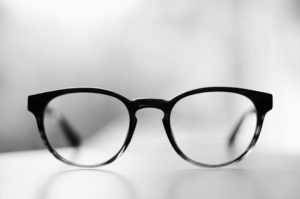Nearly 61 percent of the American population wear some kind of corrective vision devices to improve their vision. That’s more than 6 out of every 10 adults.
 If you know you need corrective lenses, you’re probably trying to decide whether you want glasses or contacts. Which is the better choice?
If you know you need corrective lenses, you’re probably trying to decide whether you want glasses or contacts. Which is the better choice?
There are advantages and disadvantages to both contacts and glasses. Want to learn more? Keep reading! Learn about contacts vs glasses and see which one is right for you.
Common Reasons to Need Corrective Lenses
There are several common vision problems that require glasses or contacts to correct. When the eyes can’t focus on light, the result is blurry vision or refractive errors.
The most common vision disorders include:
- Hyperopia: also called farsightedness – close items appear blurry
- Myopia: also called nearsightedness – far items are blurry
- Astigmatism: a refractive error, like nearsightedness and farsightedness; the cornea is shaped differently
- Presbyopia: close objects are blurry (occurs as individuals age)
Top Reasons You Might Need Glasses or Contacts
If you think you might need glasses or contacts, the only way to know for sure is to get an eye exam.
You should especially go to the eye doctor if you experience any of the following symptoms:
- Blurred vision from up close or far away
- Constant headaches
- Trouble seeing at night
- You feel eye strain after working long periods on the computer
- You see halo rings from light
- You see double
How to Decide Between Contacts vs Glasses
Can’t decide whether to get contacts or glasses? Here’s an in-depth look at the pros and cons of both.
Contact Lenses
Contact lenses are worn directly on your eyes. There are different types of contact lenses available depending on your preferences.
There are lenses that you wear during the day and you replace after one month.
There are also daily disposables that you wear just during the day then throw out at night.
There are contacts that are disposable after one week or after two weeks.
When worn correctly, contact lenses are safe and comfortable.
Advantages
Easy to Use
Although there is a bit of a learning curve, after a short while, you’ll become a pro at wearing and removing your contacts. It only takes a short amount of time to clean and wear them in the morning, and to remove, clean and store at night.
If you prefer to not deal with disinfecting and storage, you can wear daily disposables and replace every day.
Can Treat Different Types of Vision Problems
Contact lenses are a great choice for people whose vision changes frequently. An eye exam is required to change your prescription for contacts every year, so you know that your prescription is always up to date and that you have the most effective prescription for your eyes.
Can Wear During Sports
With contacts, you can play sports without having to worry about glasses falling off or breaking.
You can also work out comfortably while wearing contact lenses. Whether running or lifting weights, your lenses, unlike glasses, won’t slip off from the sweat or high impact.
Sits on the Eye
Since contacts sit right on the eye, you have better peripheral vision than compared to wearing glasses. They are also comfortable to wear and shouldn’t irritate or bother your eyes.
If your contacts bother your eyes, tell your eye doctor.
Doesn’t Change the Way You Look
You can wear contacts without affecting your appearance at all. In fact, a study showed that children who wore contact lenses after wearing glasses for five years had higher self-esteem than those who continued wearing glasses.
You Can Change Your Eye Color
However, if you do want to change up your look, you can change your eye color with colored contact lenses. You have the option to see how you’d look with a different eye color.
Disadvantages
Let’s take a look at the disadvantages of wearing contact lenses.
Chance of Infection
There is always a chance of developing an infection if your contact lenses aren’t cleaned or worn properly. However, when you get contact lenses, your eye doctor will teach you how to put them on and take them off.
You’ll also learn how to disinfect and store them properly.
Can Get Lost or Tear
Contact lenses are small and transparent. Take into consideration if you’re the type of person that loses small objects easily; perhaps glasses would be the better choice for you.
Touching Eyes
Contacts aren’t the best option if you have a phobia of touching your eyes. Someone with an eye phobia may be uncomfortable looking at eyeballs or touching their eyeballs. They may get anxious at the thought of putting contact lenses in their eyes.
You can learn the proper steps and techniques to disinfecting and wearing contacts so that you reduce the risk of infection. Make sure to use a mirror to do each step correctly.
Can Result in Dry or Irritated Eyes
Contact lenses can increase the chance of having dry eyes or irritated eyes. This can happen from wearing them for too long or wearing them while working on the computer for a long time.
You can also develop eye irritation or redness if you nap or sleep with your contacts—which is not recommended.
You may develop an allergy to your contact lens solution and can result in red eyes, which would require switching contact lens solution.
More Expensive Than Glasses
Contact lenses can be more costly than glasses. You’ll have to get your eye exam more often than glasses. Also, you will have to purchase new contacts throughout the year rather than one pair of eyeglasses.
Glasses
Today’s glasses are a fashion statement and come in all styles of frames and colors. Remember that even if you choose contact lenses, you’ll still need a backup pair of glasses.
Advantages
Let’s look at the best parts of wearing glasses.
A Fashionable Choice
There are so many styles, frame shapes (such as oval, round or square), materials (various plastics and metals), and colors (classic brown or black and fashion colors like purple, red, blue) to choose from.
You can get more than one pair of glasses to match the occasion or your style. Instead of hindering your appearance, glasses can complement your face and change up your look.
Customizable
There are glasses you can get that adjust to the sunlight. The lenses develop a tint in the sun to protect your eyes from the light.
You can also add customizable options such as anti-glare or anti-scratch coating. There are also warranties you can purchase in case you break your glasses and need a new pair.
Easy to Wear or Remove
If you prefer the low-maintenance lifestyle, glasses are a good option. It takes just a second or two to put them on and take them off. You also don’t need to worry about storage and disinfecting as you do with contact lenses.
All you need is an optional storage case to protect your glasses when you’re not wearing them. If you’re in bed reading, you can just take them off and put them in the storage case on your nightstand.
Decreased Risk of Eye Infection
Because you don’t need to touch your eyes or place anything on your eyeball, you don’t have to worry about bacteria getting in your eyes.
More Affordable
You only need to purchase one pair of eyeglasses, and they can typically last years if you take care of them. When you get a new prescription, you can just change the lenses on your glasses.
However, it’s always best to own a backup pair of glasses. You never know what can happen, and you don’t want to be left with compromised vision if you lose or break your only pair of glasses.
Disadvantages
Here are the negatives of dealing with eyeglasses.
Weather Can Affect Vision
The weather can physically affect your glasses. If it’s raining or snowing, moisture and temperature variation can impact how well you can see.
Have you ever tried baking with your glasses on? Once you open up the oven, the heat from the oven can fog up your glasses. The same can happen with the dishwasher or steam coming from the stovetop.
Peripheral Vision Affected
Ever tried to look at something out of the corner of your eye with your glasses on? Since your glasses don’t wrap around your face, your peripheral vision can be blurry.
Can Feel Uncomfortable
On a hot humid day, sweat can make your glasses slide down your nose. In fact, any type of extreme weather can make it uncomfortable to wear glasses. With the heat, you have to constantly adjust them and stop them from sliding down.
In the cold, it may be uncomfortable to wear a knit hat over your ears. The pressure from the hat and the glasses frame can feel uncomfortable.
Makes Some Individuals Feel Self-Conscious
Some people feel self-conscious about wearing glasses – perhaps embarrassed at having to wear them. Others may not like the way they look with glasses no matter what style they have chosen.
If you have a strong prescription, your lenses might be especially thick and can make your eyes look magnified.
Some people are simply bothered with the idea of a physical object sitting on the bridge of their nose, across their brow, and behind their ears,
Final Advice When Choosing Between Contacts vs Glasses
The answer to contacts vs glasses depends on your lifestyle. If you’re active and need to wear corrective lenses that don’t get in the way, contacts may be the right fit for you.
However, know that you don’t have to choose one or the other. Many individuals choose to wear a combination of contacts and glasses throughout the week or the day.
Some people put their contacts on in the morning for work. Once home, they take them off and enjoy their evening with their glasses on.
Other people wear their glasses primarily, and only wear contacts for working out or playing sports.
See what works best for you!
Schedule an Appointment with an Eye Doctor
Whether you choose contacts or glasses, remember to always wash your hands with water and soap before touching your eyes.
Also, make sure to visit the eye doctor as needed. An eye doctor can check your eye health as well as your vision and treat any problems.
Have more questions about choosing between contacts vs glasses? Ready to schedule an appointment? Contact us today to request an appointment.









